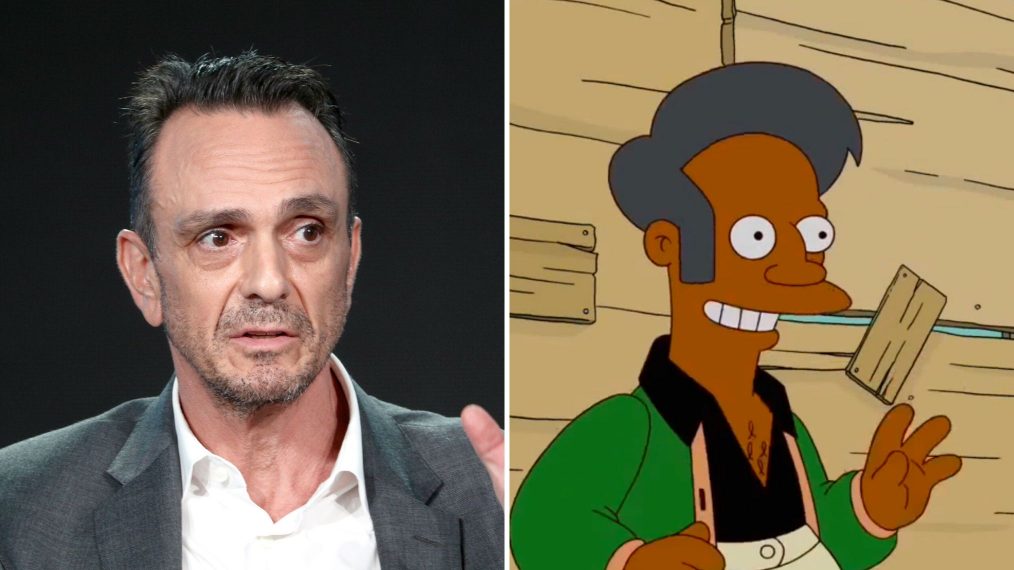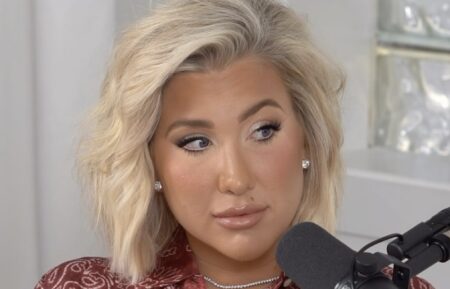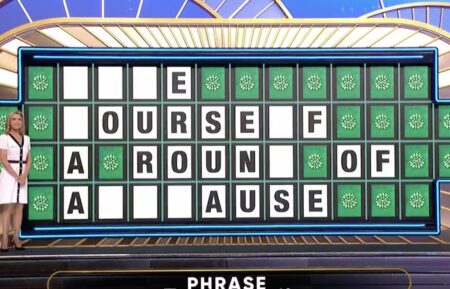What Led to Hank Azaria’s Decision to Stop Voicing Apu on ‘The Simpsons’?

After 30 years — and arguably 30 years too late — Hank Azaria, a white actor, will no longer voice Kwik-E-Mart proprietor Apu Nahasapeemapetilon, an Indian-American character, on The Simpsons.
Azaria’s decision follows years of critics accusing The Simpsons of racial stereotyping and racist caricature in regards to the character, a backlash that intensified in 2017 with the release of the documentary The Problem With Apu.
Here’s a chronology of the controversy.
July 2007
The Associated Press notes the backlash to the character after 7-Eleven converts 12 of its convenience stores to Kwik-E-Marts in promotion of The Simpsons Movie.
7-Eleven marketing exec Rita Bargerhuff tells the AP that the response from franchisees, many of whom are Indian, is “overwhelmingly positive” but “not a 100 percent endorsement.”
November 2007
In an interview on the talk show LateNet With Ray Ellin, Azaria recalls how his role as Apu started, describing a conversation with the writers of the show. “Right away, they were like, ‘Can you do an Indian accent, and how offensive can you make it?’ basically,” he says. “I was like, ‘It’s not tremendously accurate. It’s a little, uh, stereotype,’ and they were like, ‘Eh, that’s all right.’”
September 2012
On Totally Biased With W. Kamau Bell, writer Hari Kondabolu criticizes The Simpsons while discussing Indian-American representation on television in a five-minute web-exclusive clip from the FX comedy series.
“There’s now enough Indian people that I don’t have to like you just because you’re Indian,” he says. “Because growing up, I had no choice but to like [Apu]. … If I saw Hank Azaria doing that voice at a party, I would kick the s—t out of him.”
September 2013
HuffPost spotlights the controversy with the Mallika Rao article “Is It Time to Retire Apu?” which features anecdotes from celebrities of South Asian descent.
“I hate that guy,” says The Mindy Project actor Utkarsh Ambudkar, who later appeared with Azaria in the IFC comedy Brockmire. “It totally f—ked with my childhood.”
Adds Silicon Valley’s Kumail Nanjiani, “When I go into an audition, they want me to do an accent. I already have a Pakistani accent, but they want me to do ‘the Apu accent.’ A lot of people think of that as being the go-to comedy Indian accent.”
Azaria gives his take in the article, too. “I’ve never really talked about it,” he says. “I know it’s a touchy subject. I really do love the character and do try to do right by him accent-wise and character-wise, and that goes for all the characters I do. But I do understand why people could have been offended or upset, and I’m sorry for that.”
The actor also says that one line in particular from Kondabolu’s Totally Biased segment stuck with him: that Apu’s accent sounds like “a white guy doing an impression of a white guy making fun of my father.”
May 2016
TruTV greenlights Kondabolu’s documentary, The Problem With Apu, in which he “questions how this controversial caricature was created, burrowed its way into the hearts and minds of Americans and continues to exist — intact — 26 years later.”
November 2017
The Problem With Apu premieres on truTV, featuring interviews with Kal Penn, Aziz Ansari, Sakina Jaffrey, Malik Pancholy, Hasan Minhaj, Whoopi Goldberg, and former Simpsons writer Dana Gould.
“There are accents that by their nature, to white Americans — I can only speak from experience — sound funny,” Gould says in the film.
Azaria does not participate in the documentary, but Kondabolu later says that the actor initially offered to have a conversation with him about Apu either on NPR’s Fresh Air or Marc Maron’s WTF podcast but ultimately rescinded the offer.
January 2018
Azaria addresses the problem with Apu, so to speak, at the Winter 2018 Television Critics Association Press Tour after revealing that he saw Kondabolu’s documentary. “The idea that anybody, young or old, past or present, was bullied or teased or worse based on the character of Apu on The Simpsons, or the voice or any other tropes of the character is distressing, especially in post-9/11 America,” he tells reporters, per Entertainment Weekly. “The idea that anybody was marginalized based on it or had a hard time was very upsetting to me personally and professionally. It’s a character I’ve done for 29 years now, and I’ve done it with a lot of love, and joy, and pride. That certainly wasn’t the intent. The intent was to make people laugh and bring joy. For it to cause suffering or pain in any way, it’s disturbing, actually.”
April 2018
The Simpsons addresses the controversy in the Season 29 episode “No Good Read Goes Unpunished,” in which Marge realizes one of her favorite childhood stories is much more racist than she remembered. Lisa responds, speaking directly to the audience: “Something that started decades ago and was applauded and inoffensive is now politically incorrect. What can you do?”
Viewers then see a close-up of a framed photo of Apu with the handwritten message “Don’t have a cow.”
“Some things will be dealt with at a later time,” Marge says. Lisa replies: “If at all.”
#TheSimpsons completely toothless response to @harikondabolu #TheProblemWithApu about the racist character Apu:
“Something that started decades ago and was applauded and inoffensive is now politically incorrect… What can you do?” pic.twitter.com/Bj7qE2FXWN
— soham (@sohamberlamps) April 9, 2018
The scene only adds fuel to the flames. “Wow,” Kondabolu tweets. “‘Politically incorrect’? That’s the takeaway from my movie & the discussion it sparked? Man, I really loved this show. This is sad.”
Writes W. Kamau Bell, “I think the fact that they put this ‘argument’ in the mouth of Lisa’s character, the character who usually champions the underdogs and is supposed to be the most thoughtful and liberal, is what makes this the most ridiculous (as in worthy of ridicule) and toothless response.”
In an interview on The Late Show With Stephen Colbert later that month, Azaria reveals he’s ready to depart the role. “The idea that it’s brought pain and suffering in any way, that it was used to marginalize people, it’s upsetting, genuinely,” he says. “I am perfectly willing and happy to step aside or help transition it into something new. I really hope that’s what The Simpsons does. It not only makes sense, but it just feels like the right thing to do to me.”
Kondabolu responds to the interview via Twitter, writing, “Thank you, @HankAzaria. I appreciate what you said & how you said it.”
January 2020
Azaria confirms at the Winter 2020 Television Critics Association Press Tour that his days of voicing Apu are behind him. “All we know there is I won’t be doing the voice anymore, unless there’s some way to transition it or something,” he says, per /Film. “What they’re going to do with the character is their call. It’s up to them, and they haven’t sorted it out yet. All we’ve agreed on is I won’t do the voice anymore.”
February 2020
The actor elaborates on his decision in an interview with The New York Times published on the 30th anniversary of Apu’s debut on The Simpsons. “Once I realized that that was the way this character was thought of, I just didn’t want to participate in it anymore,” he told the paper. “It just didn’t feel right. … What happened with this character is a window into an important issue. It’s a good way to start the conversation. I can be accountable and try to make up for it as best I can.”
The Simpsons, Fox, Sundays, 8/7c









